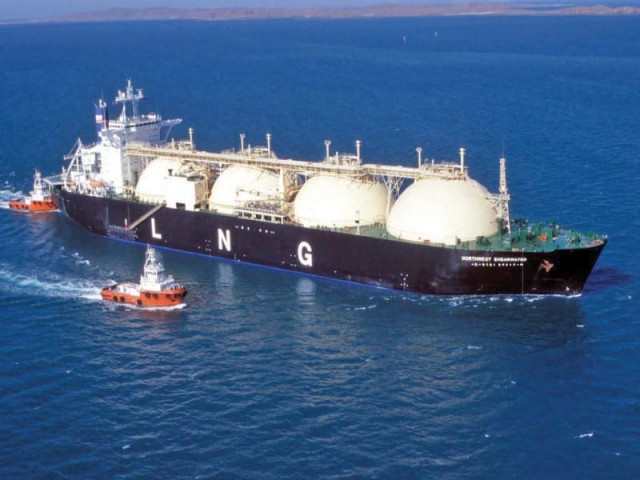As LNG imports rise, refineries brace for imminent closure
Demand from power plants for furnace oil supply falls to zero

The situation aggravated when oil marketing companies kept importing furnace oil due to increasing demand, mainly from power producers. PHOTO: FILE
Industry sources said the refineries would stop producing petroleum products one after another very soon since supplies of furnace oil had plunged to zero following closure of 10 oil-fired power plants on the orders of Prime Minister Shahid Khaqan Abbasi due to the gradual start of LNG power plants in the winter season.
Exxon Mobil pulls out of major LNG project in Pakistan
“The oil storage capacity is brimming with furnace oil; we cannot continue producing refined petroleum products, including jet fuel, petrol, diesel and kerosene oil in coming days,” an industry official said.
“We may not be able to operate if the current situation continues for over 8 to 10 days,” said a high official of Byco Petroleum, which runs the country’s largest refinery of 120,000 barrels per day.
An official of Attock Refinery painted an even grimmer picture, saying they would close the refinery if the situation persisted for three to four more days.
The sudden closure of oil-based power plants coincided with 100% increase in the country’s LNG import capacity to 1,200 million cubic feet per day after the second LNG terminal came on line at Port Qasim on Monday.
A source explained that all petroleum products were produced in one go and it was impossible for the refineries to stop producing furnace oil and continue to churn out other products.
The halt to the refineries’ operations would also impact oil exploration and production in the country.
“If things do not get better, a shortage of petroleum products may emerge at filling stations, which will lead to increased imports of refined petroleum products,” a source cautioned.
Refineries meet 30% (around 8-9 million tons) of the domestic demand while the rest is met through imports.
The situation aggravated when oil marketing companies kept importing furnace oil due to increasing demand, mainly from power producers.
PSO paying demurrages
An official said a ship carrying 55,000 tons of furnace oil has been waiting for offloading its cargo since November 10 as the storages were full.
“(State-owned) Pakistan State Oil (PSO) has imported the oil and has been paying $15,000 per day in demurrages since November 10,” the official added.
‘Pakistan expects no more big firms to exit LNG projects’
PSO, the largest oil marketing company with over 56% market share in Pakistan, is set to receive three more ships before the end of November with cargo totalling 250,000 tons and another three vessels will bring 200,000 tons in December.
“Oil has been imported to meet the demand raised by the power plants via government channels,” a source said.
Other oil marketing companies are also facing a similar situation.
Solutions under consideration
The government is considering many options to resolve the crisis, including cancelation of furnace oil import orders which will lead to payment of penalties and/or resuming oil-fired power plants.
The Ministry of Energy, oil refineries and marketing companies have been holding meetings for the past one week or so. Now, the decision has to be taken by the prime minister, according to industry officials.
An industry source said two oil-fired power plants, out of the 10 closed ones, had resumed production to consume furnace oil stocks and ease the pressure off refineries.
Besides, the Ministry of Energy is determined to stop further furnace oil imports to help stabilise refineries. “The ministry is expected to notify the ban on imports tomorrow (Saturday),” he said.
Published in The Express Tribune, November 25th, 2017.
Like Business on Facebook, follow @TribuneBiz on Twitter to stay informed and join in the conversation.



















COMMENTS
Comments are moderated and generally will be posted if they are on-topic and not abusive.
For more information, please see our Comments FAQ